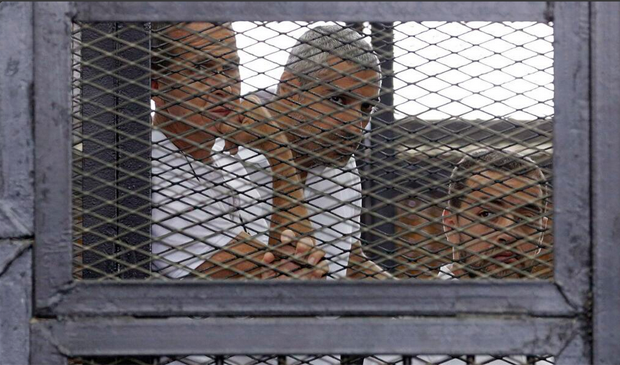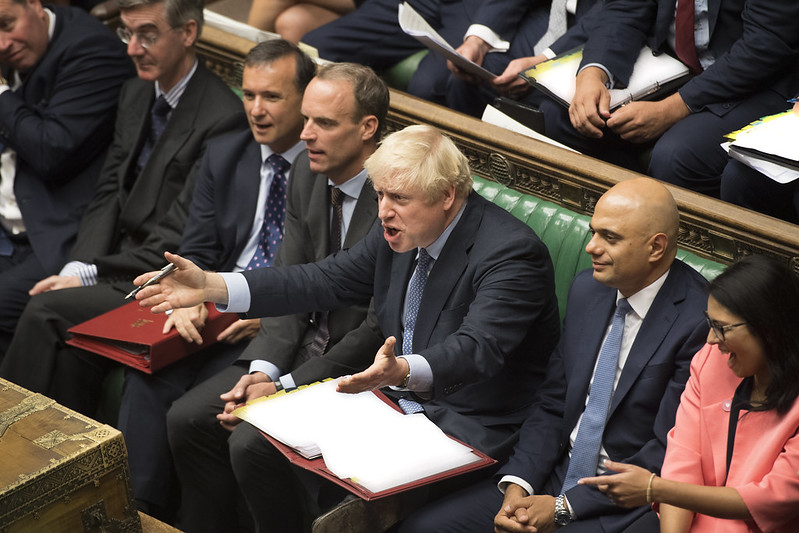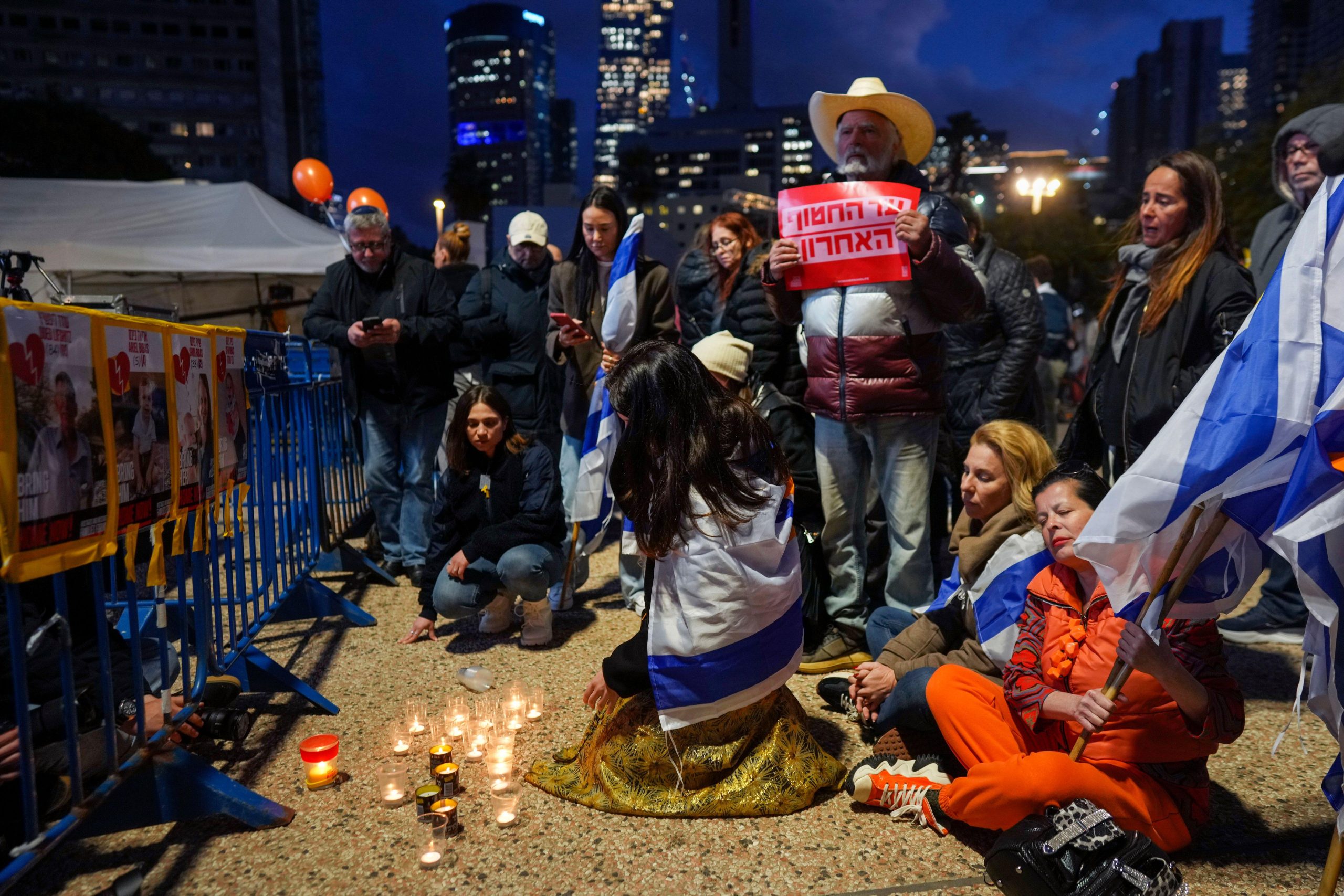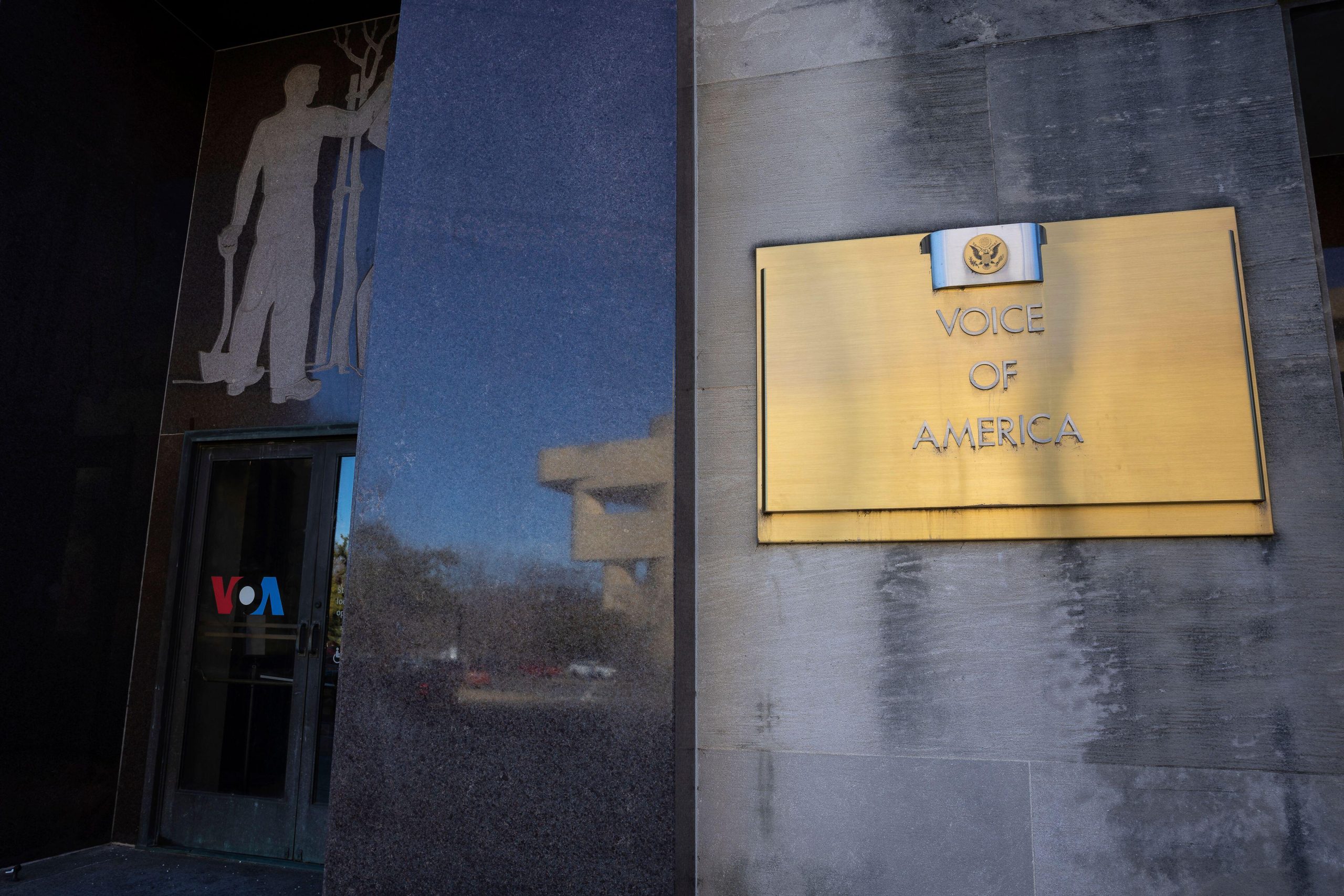
The sentencing of Al Jazeera journalists today took Michelle Betz back to her own trial.
Just over a year ago I was awoken around 5am in Washington by a call from my Egyptian colleague. “Guilty,” he breathed. “We are all guilty”. I could hear the shock in his voice. I couldn’t yet feel my own shock.
We were defendants in the NGO trial in which 43 people working for four US and one German NGOs were accused of charges including operating without a licence and bringing foreign funds into the country. There were so many ironies about the case, the trial, and the charges; so many outrages; so many injustices. There were many, many parallels with what is happening now with the Al Jazeera journalists.
There was little international noise around our “trial”. And that is the one thing that has been different with the Al Jazeera trial – at least there has been no silence.
At the time I was working with the International Center for Journalists, from Washington DC. Judicial officials didn’t even have my full name, but there I was number 39 on the charge document.
I knew full well one year ago that we would be found guilty despite the multitude of assurances from all corners: the NGOs, the US State Department, the lawyers – all tried to assure us that this was all political (between the US and Egypt) and that this would “all go away”. Of course, logically, this should have all gone away. Just as with the Al Jazeera case, logically, it never should have happened. Logically, we, as they, should have been found innocent.
But dealing with the Egyptian judicial system is anything but logical.
In neither case was there any evidence and in neither trial did the prosecution have any legitimate case. But that was beside the point. They didn’t need evidence. They didn’t need a case. All they needed to do was follow the directive from on high and read the verdict: guilty.
I lived in Egypt for three years and I can never go back. If I did I would be immediately imprisoned.
Some have expressed surprise at the speed with which today’s verdict was rendered asking how the judge could possibly have written his judgment in so short a time. He didn’t. Instead, it’s highly likely that the judgment was already written six months ago. The judge was simply doing what he was told. I too would have worn sunglasses to court today; I too would have dragged my feet getting to work for surely there was some weight on his conscience.
So what now? The Egyptians learned from our case. At least in the NGO case none of us were imprisoned, though Egypt did pursue some of us through Interpol. The one thing the US did was to get all Americans (save one hero, Robert Becker, who refused to leave his Egyptian colleagues facing trial alone) first to the US Embassy in Cairo (where they stayed for days) and then finally flew them out in the middle of the night after some backroom deal was worked out with Egyptian officials.
And the Egyptian establishment has learned from this. They learned not to allow bail to prevent defendants leaving Egypt. They learned that the US (and the international community at large) didn’t care and that there would be no repercussions even if American citizens were convicted and sentenced to five years of hard labor. They learned that even the media didn’t care.
But on that last point they miscalculated – they didn’t realise that there is a tribe of journalism, which does not suffer injustice and attacks on its own. And that is our hope at this point – that we raise our voices, we continue to speak the truth, we continue to point to injustices, including injustices wrought on our tribe. For if we are silenced, then we all face injustice.
Yes, of course there was no evidence and of course the prosecution had no case. And so today we find ourselves one year on watching in horror as three Al Jazeera journalists are convicted and sentenced to 7-10 year prison sentences and those convicted in absentia to an even lengthier sentence (just like those convicted in absentia in the NGO trial, such as myself, who received longer sentences).
And so while my colleagues were shocked by our verdict one year ago, I was not. And if we were found guilty then so too would our Al Jazeera colleagues. There was a message to be sent.
But the convictions should be no surprise. Rule of law in Egypt as always been tough to find but almost any remaining semblance of it disappeared with the coup of 2013.
This article was posted on June 23, 2014 at indexoncensorship.org




